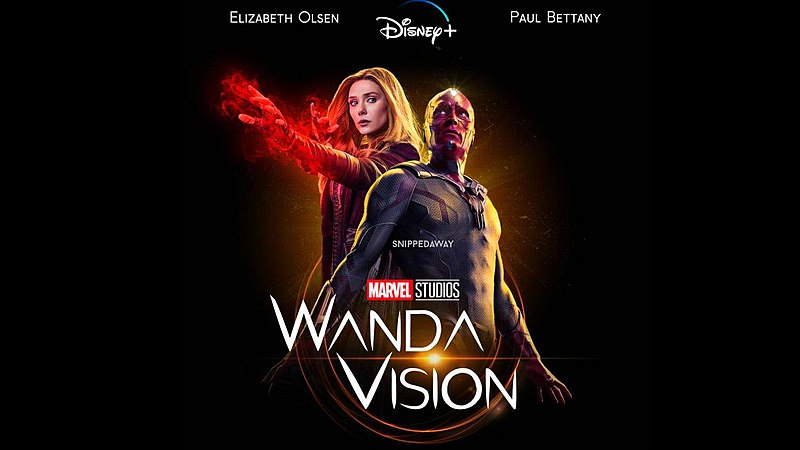WandaVision whisks viewers through time, out of pandemic
WandaVision is the first Marvel Disney+ show, and it follows Wanda Maximoff (Elizabeth Olsen) and her android husband, Vision (Paul Bettany) living an idyllic suburban life where not everything is what it seems.
March 4, 2021
One of the many reasons the Covid-19 pandemic has been so hard on teenagers is the monotony. Every day feels the same. At the moment, there are exactly three things giving variety to my life: exam dates, “The Bachelor” and “WandaVision.”
As much as I have to say about the problematic yet wildly entertaining Bachelor franchise, it’s nothing new. “WandaVision” is new, and unlike “The Bachelor” (which has been somewhat disappointing this season), it’s the perfect Covid-19 watch.
WandaVision is the first Marvel Disney+ show, and it follows Wanda Maximoff (portrayed by Elizabeth Olsen), who had appeared as an Avenger in previous Marvel movies. Wanda and her android husband, Vision (Paul Bettany), live an idyllic suburban life where not everything is what it seems. In true Marvel fashion, the show has much more in store than this brief summary suggests, but saying anything else spoils it.
Each episode is 30-45 minutes long, and centers on a specific age of sitcom tropes. The first episode is set in the 1950s, and parodies “The Dick Van Dyke Show”. The second episode brings in “Bewitched” and the 1960s, and so on.
At this point, you’re probably thinking “Wow, this doesn’t seem like any other superhero show or movie.” My mother leaned over to me during the second episode and asked “What are we watching?”
The show seems exactly like any classic sitcom for the majority of the first three episodes, but part of the joy that “WandaVision” provides comes from grasping at straws, trying to figure out what’s going on. Every line of dialogue and set piece seems to hint at a bigger picture, and combined with the occasional shocking anecdote, “WandaVision” is ridiculously fun to watch.
The show is the first release of Phase 4 of the Marvel Cinematic Universe (MCU), and the plot it sets up is going to lead the way in a new era of superhero cinema. Any Marvel nut or casual viewer will be sucked into WandaVision’s world and will spend each episode sifting through every inch of this seemingly mundane show to find the larger plot and villain, which do exist.
Each episode leaves the viewer on a massive cliffhanger every episode. It’s perfect for the Covid-19 age, partially because it’s not bingable since only one episode is released per week until Mar. 5 . Every Friday, a new plotpoint is unveiled that shakes the entire MCU in the last five minutes of the episode, forcing fans to wait another week to find out ramifications.
This might seem agonizing, but it’s great. “WandaVision” breaks up the at-home monotony by giving viewers something to look forward to. Every week, the internet goes into a tizzy trying to figure out what we learned from an episode, giving watchers plenty of discussion and theories to pour over until the next Friday.
The weekly nature of the show also pushes viewers to go back and watch movies that connect to “WandaVision” in order to better understand the series. “WandaVision” prompts viewers to rewatch movies that are already available on Disney+. “WandaVision” doesn’t just bring half an hour of content weekly — it opens the door to hundreds of hours of content.
Though the show’s first season ends soon, it’s still worth it to watch “WandaVision,” even if you didn’t get to take part in the theorizing phenomenon that surrounded it. Olsen, Bettany and the slew of supporting actors in the show do a wonderful job of changing up mannerisms and acting styles to fit the different sitcom ages. Even if you have no knowledge of the MCU, “WandaVision” is still worth watching for the sets, performances and costumes.
“WandaVision” has been a fantastic Covid-watch, and it’s only the start of 2021 Marvel content. Currently, five MCU shows other than “WandaVision” are planned to be released on Disney+ this year. If they’re anywhere close to as entertaining as WandaVision, maybe this year won’t be as terrible as 2020.







